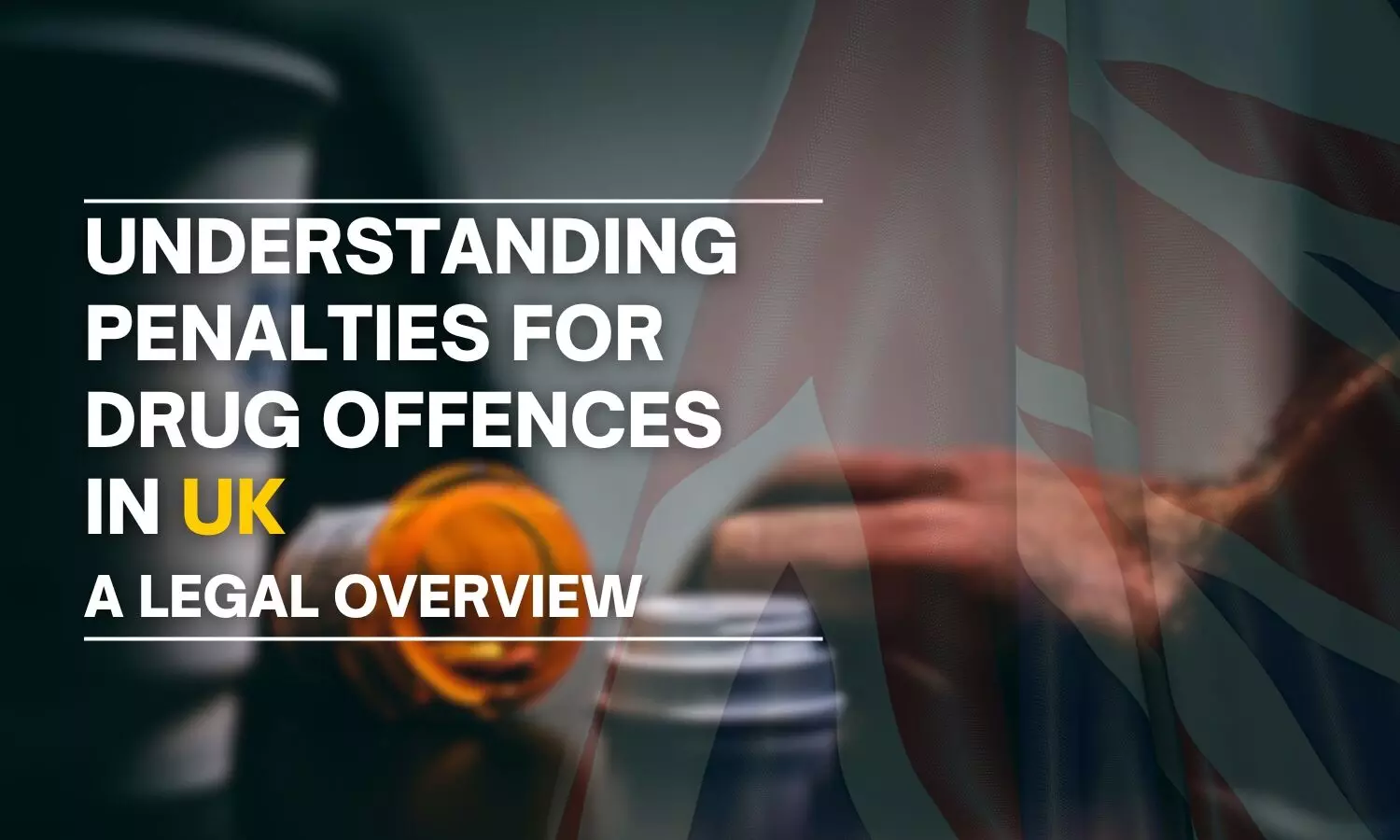Understanding the Penalties for Drug Offences in the UK: A Legal Overview
The article highlights the evolving legal landscape of drug offences in the UK, emphasizing the critical role of conspiracy solicitors in navigating intricate penalties. Scroll down to read more!

In recent years, the UK has seen a significant shift in its legal landscape concerning drug offences, prompting both legal professionals and the public to seek a deeper understanding of the penalties involved. As the complexities of these laws continue to evolve, navigating the repercussions of drug-related crimes becomes increasingly challenging.
Enter the expertise of a conspiracy solicitor, who plays a pivotal role in defending those accused of involvement in drug conspiracies. This article delves into the intricate web of legal ramifications surrounding drug offences in the UK, offering a comprehensive overview of the penalties.
Types of Drug Offences
Drug offences in the UK are categorised into several key types, each carrying different penalties. The most common categories include:
- Possession
Possession of controlled substances is one of the most common drug offences. The severity of the penalty depends on the type and amount of the drug in question. Controlled substances are classified into three categories:
- Class A: Includes drugs like heroin, cocaine, and ecstasy.
- Class B: Includes drugs like cannabis, amphetamines, and barbiturates.
- Class C: Includes drugs like anabolic steroids and benzodiazepines.
Penalties for possession can range from a simple caution to imprisonment, with Class A substances attracting the most severe punishments.
- Trafficking and Supply
Trafficking and supplying controlled substances are considered more severe offences due to their impact on society. Offenders can face long prison sentences, with penalties varying based on the class of drug and the scale of the operation.
- Production and Cultivation
Producing or cultivating controlled substances, such as growing cannabis plants, is another serious offence. These activities are punishable by significant prison sentences, especially if large-scale operations are involved.
Factors Influencing Sentencing
- The sentencing for drug offences is influenced by numerous factors, including:
- The type and quantity of the drug involved.
- The offender's role in the offence (e.g., user, dealer, or producer).
- Whether the offence involved children or took place near a school.
- The offender's previous criminal record.
Legal Assistance and Advice
If you find yourself facing charges related to drug offences, seeking expert legal advice is paramount. A qualified solicitor can provide the necessary guidance and representation to navigate the complexities of the legal system.
What Police Powers and Procedures Exist?
The police have extensive powers when it comes to investigating drug offences. They can stop and search individuals if they have reasonable grounds to suspect possession of controlled substances. Additionally, the police can obtain warrants to search premises and seize any drugs found. It’s crucial to be aware of your rights during these procedures to ensure that any evidence collected is done so lawfully.
- I. Stop and Search
Stop and search is a common tactic used by the police to find illegal drugs. If stopped, you have the right to know the reason for the search and the officer's name and badge number. The search must be conducted respectfully and reasonably. If you believe your rights have been violated, you should seek legal advice immediately.
- II. House Searches and Seizures
The police may search your home if they have a warrant, or without a warrant in certain exceptional circumstances. During a house search, they can seize any illegal drugs and items related to drug offences. It’s important to remain calm and cooperative during these searches, but also to document everything that happens for future reference.
The Impact of Convictions
A conviction for a drug offence can have long-lasting repercussions on your life. Beyond the immediate legal penalties, there are several other significant impacts to consider.
- I. Employment and Education
A drug conviction can severely limit your employment prospects. Many employers conduct background checks, and a criminal record can disqualify you from certain jobs, particularly those requiring high levels of trust and responsibility. A conviction might also affect your ability to gain entry into educational programmes or professional training, hindering your career development.
- II. Travel Restrictions
Convictions for drug offences can lead to travel restrictions, especially to countries with strict entry requirements. For example, you may find it challenging to obtain visas or enter countries like the United States. It’s wise to check the travel policies of your destination country well in advance to avoid any unexpected issues.
The Mental and Social Implications of a Drug Related Conviction
The ramifications of a drug conviction extend beyond the legal and professional spheres, potentially affecting your mental health and social relationships.
- Stigma and Relationships
The social stigma associated with a drug conviction can strain personal relationships and social interactions. People may judge or avoid you based on your criminal record, leading to feelings of isolation and alienation. It’s important to seek support from friends, family, or professional counsellors to navigate these challenges.
- Mental Health
Dealing with legal proceedings and the consequences of a conviction can take a toll on your mental health. Stress, anxiety, and depression are common among those facing drug charges. Accessing mental health services and support networks can provide much-needed assistance during these difficult times.
Understanding the Penalties for Drug Offences
Understanding the penalties for drug offences in the UK is crucial for anyone who finds themselves involved with controlled substances. The consequences can be severe, ranging from imprisonment to long-term impacts on your personal and professional life. It’s essential to be aware of your rights and seek expert legal advice if you are facing drug charges.
In conclusion, navigating the complexities of drug offences requires both knowledge and support. By staying informed and taking appropriate legal steps, you can better manage the challenges that come with facing these serious charges.
Important Links
Law Library: Notes and Study Material for LLB, LLM, Judiciary, and Entrance Exams

